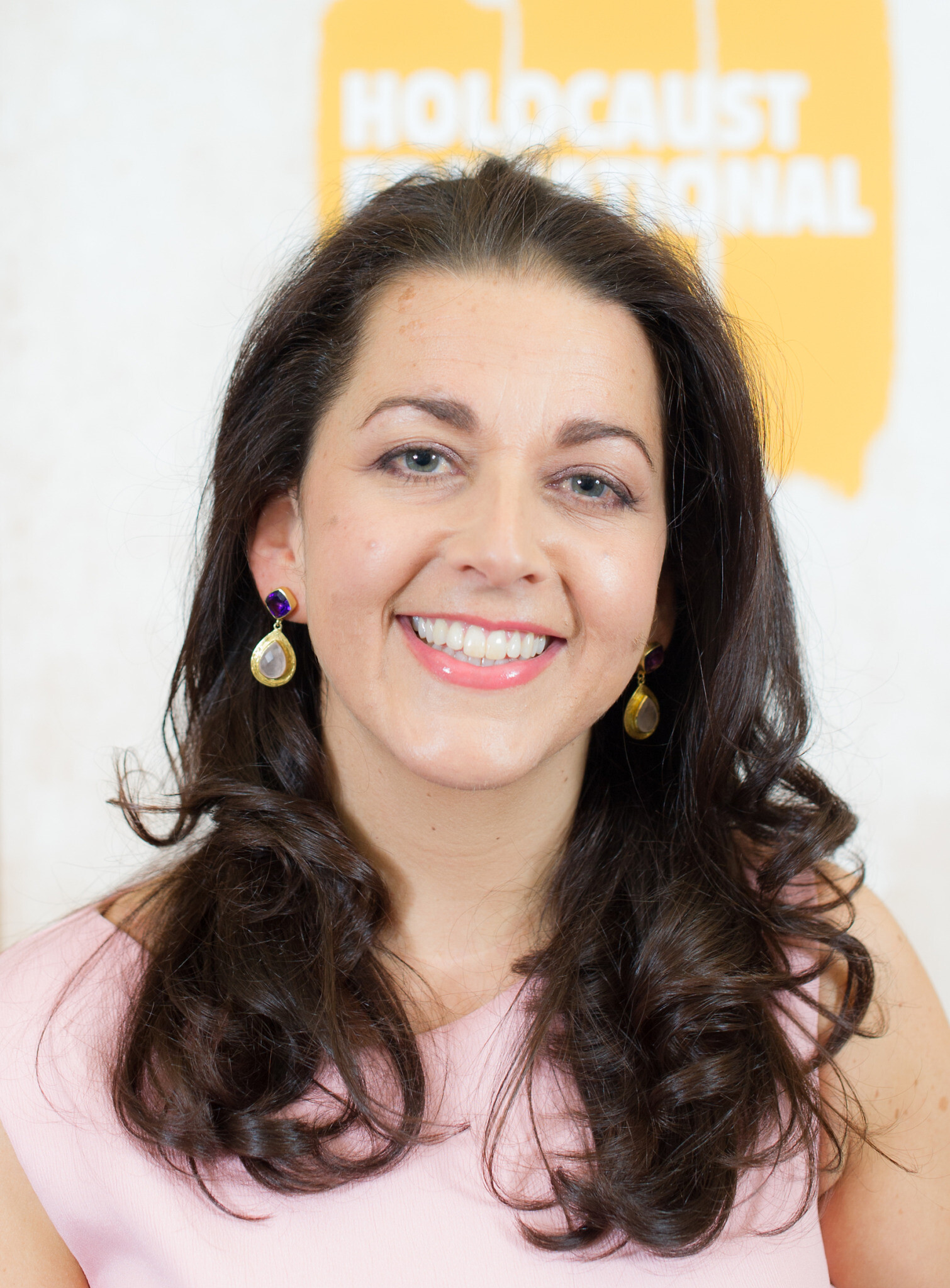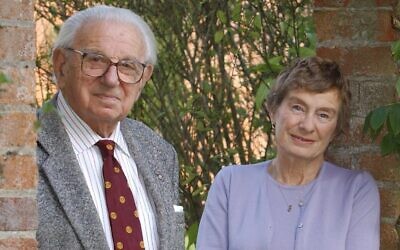OPINION: Kindertransport legacy: Confronting antisemitism in today’s world
Some 85 years after Sir Nicholas Winton rescued 669 mostly Jewish children from Nazi persecution, the British government remains an unshakable ally of the Jewish community
One Life, starring Anthony Hopkins, has opened in cinemas. It tells the story of a quiet, unassuming man who managed something extraordinary – the rescue of 669 mostly Jewish children from Nazi occupied Czechoslovakia.
His work, alongside other brave men and women, brought unaccompanied children here to the UK, giving them a sanctuary from the horrors being inflicted at home. Together, efforts across Germany, Austria and Czechoslovakia, the Kindertransport as it became known allowed almost 10,000 Jewish children to settle here.
Many have crowded into cinemas and no doubt leave in awe of the determination, resourcefulness and bravery of Nicholas Winton – as I was whenever I met him.
But the truth is, none of this story is straightforward – as is alluded to in the film.
The decision to allow Jewish children into the UK took time, persuasion and campaigning. Despite all of that work, it was really the November pogrom, known as Kristallnacht, that served as a wake up call for the rest of the world, showing as it did that the anti-Jewish hate had reached a crescendo and that there was a real risk to Jewish life. Seeing the annexation of Czechoslovakia, it became clear to many that this threat spread beyond Germany and Austria.
The Kindertransport has long been heralded as Britain’s response – seeing the risk, this country led by example, using British values to save Jewish lives. But like so much of the history of the Holocaust, it was complex.
Because while 10,000 Jewish children were saved, the majority of them would never see their parents again – they were not permitted entry and most of them were later murdered by the Nazis.
It took time for the British Government to make the decision to allow these children access. The violence seen rampaging through German towns and cities during Kristallnacht finally tipped the balance, proving to the onlooking world that Jewish people under Nazi control were at imminent risk. But this did not come out of nowhere, it came after years of increasing persecution and antisemitism.
And this ‘rescue’ of children did not come cheap – the bond required for each child was £50, equivalent to £2,780 in today’s money. Private citizens or organisations had to guarantee payment for each child’s care, education, and eventual emigration from Britain. The original plan by the British Government was for these unaccompanied children to return home to their families once the “crisis was over”.
The Kindertransport is not simply a story of rescue and survival. At its heart it is also a story of loss. It is a story of children who came here, many alone and without speaking a word of English, and who managed to rebuild their lives. It is a story of parents, who were forced to make the impossible decision to send their children away to unknown lands. It is the story of the murder of most of those loved ones left behind.

As is shown so powerfully in One Life, it is also the story of those who did not get out: the last train, scheduled to leave Prague on 1st September 1939 never left the station because war was declared. 1.5 million children were murdered during the Holocaust, their lives were not saved, and instead their birth as Jews condemned them to murder in fields, ravines, and gas chambers across Europe.
So, as we watch One Life, we remember the children saved by the Kindertransport, and all of those who were not. In doing so we are reminded where antisemitism, the world’s oldest hatred, can lead and why it is so crucial to always confront it when it rears its ugly head. We know that at this moment, when Jewish hate is once again spilling into violence, this challenge could not be more vital. And we also remember the bravery and heroism of individuals like Sir Nicholas Winton, determined to make a difference, no matter what.
On October 7th, we saw again Jewish people attacked and forced to seek safety – this time in secure rooms and bunkers. 1,200 Israels were massacred by Hamas terrorists whose goal is the elimination of the Jewish people.
Since October 7th we have heard the rhetoric of hate on marches and on the streets. It has permeated online spaces, and even classrooms.

But thankfully, although the hatred comes from the same root – the antisemitism that has endured for centuries – much else has changed.
When we think back to the Kindertransport, one difference is clearest of all. At every level of society, there are people committed to ensuring that anti-Jewish hatred is tackled, head on.
The Government is not waiting to make a difference or limiting its support for the Jewish community. Rather, it has spoken out, time and again, since 7th October against antisemitism. As has the Labour Party, standing resolutely in support of our community.
We have allies across the UK. Whether the 100,000 who joined the March Against Antisemitism, or the tens of thousands every week who are refusing to be silent as hatred sweeps social media.
And the Chancellor’s announcement in the Autumn Statement, that much-needed funds have been committed to tackle antisemitism in our schools and at our universities, will help to ensure that this hatred can be addressed at the root – in the classroom.
Because people who understand what contemporary antisemitism looks like, what it sounds like, and what it can lead to, can be empowered to speak out against it. So that never again can never ring hollow.
Let’s hope that this year, these words ring true.
- Karen Pollock CBE is chief executive of the Holocaust Educational Trust

Thank you for helping to make Jewish News the leading source of news and opinion for the UK Jewish community. Today we're asking for your invaluable help to continue putting our community first in everything we do.
For as little as £5 a month you can help sustain the vital work we do in celebrating and standing up for Jewish life in Britain.
Jewish News holds our community together and keeps us connected. Like a synagogue, it’s where people turn to feel part of something bigger. It also proudly shows the rest of Britain the vibrancy and rich culture of modern Jewish life.
You can make a quick and easy one-off or monthly contribution of £5, £10, £20 or any other sum you’re comfortable with.
100% of your donation will help us continue celebrating our community, in all its dynamic diversity...
Engaging
Being a community platform means so much more than producing a newspaper and website. One of our proudest roles is media partnering with our invaluable charities to amplify the outstanding work they do to help us all.
Celebrating
There’s no shortage of oys in the world but Jewish News takes every opportunity to celebrate the joys too, through projects like Night of Heroes, 40 Under 40 and other compelling countdowns that make the community kvell with pride.
Pioneering
In the first collaboration between media outlets from different faiths, Jewish News worked with British Muslim TV and Church Times to produce a list of young activists leading the way on interfaith understanding.
Campaigning
Royal Mail issued a stamp honouring Holocaust hero Sir Nicholas Winton after a Jewish News campaign attracted more than 100,000 backers. Jewish Newsalso produces special editions of the paper highlighting pressing issues including mental health and Holocaust remembrance.
Easy access
In an age when news is readily accessible, Jewish News provides high-quality content free online and offline, removing any financial barriers to connecting people.
Voice of our community to wider society
The Jewish News team regularly appears on TV, radio and on the pages of the national press to comment on stories about the Jewish community. Easy access to the paper on the streets of London also means Jewish News provides an invaluable window into the community for the country at large.
We hope you agree all this is worth preserving.






















